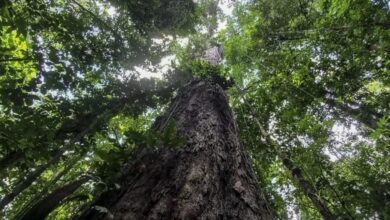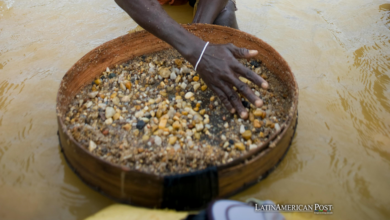Droughts, a Problem that Does not Stop Advancing
Since 2000, the Number and Duration of Droughts in the World have Increased by 29%. It is Urgent to Take Measures to Prevent Famines and Deaths.

Photo: Pexels
LatinAmerican Post | Daniel Alejandro Vergara García
Listen to this article
Leer en español: Las sequías, un problema que no para de avanzar
A new report from the United Nations Convention to Combat Desertification (UNCCD) called "Drought in numbers 2022", reveals figures on the increase in droughts in the world, which emphasize the need to urgently work on plans of mitigation and adaptation. This occurs within the framework of the 15th Conference of the Parties (Cop15) of the UNCCD, which has been taking place in the Ivory Coast since May 9.
This conference ended yesterday, May 20, with the establishment of agreements by the participating countries. The main topics discussed were: early warning, monitoring and evaluation, knowledge sharing and learning, partnerships and coordination, and finally drought financing.
COP 15 is one of three conventions that were agreed upon at the United Nations Conference on Environment and Development in Rio in 1992. Here, together with heads of state, scientists, civil population and international organizations, solutions and alternatives to various phenomena related to desertification and the increase in temperatures, closely related to the droughts that have been occurring in recent years. It is estimated that by 2050, if efficient measures are not taken, the extension of degraded land throughout the world could be equal to that of South America.
Also read: Light pollution threatens health and biodiversity
In an article in France 24, it is explained that desertification occurs as a result of overexploitation of the soil, deforestation and increased salinization of the land. This leads to the absence of various species of plants and trees that collaborate with the presence of water in the territories in certain ecosystems. This meeting takes place in a transcendental framework to decide the future of the new generations, given that the UN has made an international call for joint efforts to prevent the temperature of the earth from rising to more than 1,5 degrees in the next 5 years.
“More than 1.4 billion people were affected by drought between 2000 and 2019. This makes drought the disaster that affects the second largest number of people, after floods. Africa experienced drought more often than any other continent with 134 droughts, of which 70 occurred in East Africa," said the UNCCD in the report "Drought in numbers 2022". On the other hand, said report also indicates that during this year "more than 2.3 billion people face hydric stress and almost 160 million children are exposed to severe and prolonged droughts".
Regarding Latin America, approximately 17 million people were affected by droughts from 2000 to 2019. Honduras, El Salvador, Paraguay, Guatemala and Haiti were the most affected countries. However, countries such as Chile, Brazil, Peru, Mexico and Colombia also have areas with high exposure to drought.
Soil regeneration need and potential business.
The UNCCD report has urged governments to pay attention to the growing market for the regeneration of eroded ecosystems and soils. At the opening of COP 15, there was talk about the profit margin that this business can represent, in fact, for every dollar invested in the land, 30 could be made in profit. These discussions are added to the agreements reached by the G-20 in which they commit to restore one billion hectares by 2030 and reduce degraded land by half before the middle of the century.
“One of the best and most comprehensive solutions is land restoration, which addresses many of the underlying factors of degraded water cycles and loss of soil fertility. We must build and rebuild our landscapes better, mimicking nature wherever possible and creating functional ecological systems,” said Ibrahim Thiaw, Executive Secretary of the UNCCD.
On June 17, on the United Nations Desertification and Drought Day, a campaign called Land of Drought will be launched to the public, with this it will seek to make the population aware of the effects and the tools that can be used to deal with this phenomenon that potentially puts thousands of people in the world at risk every year.




